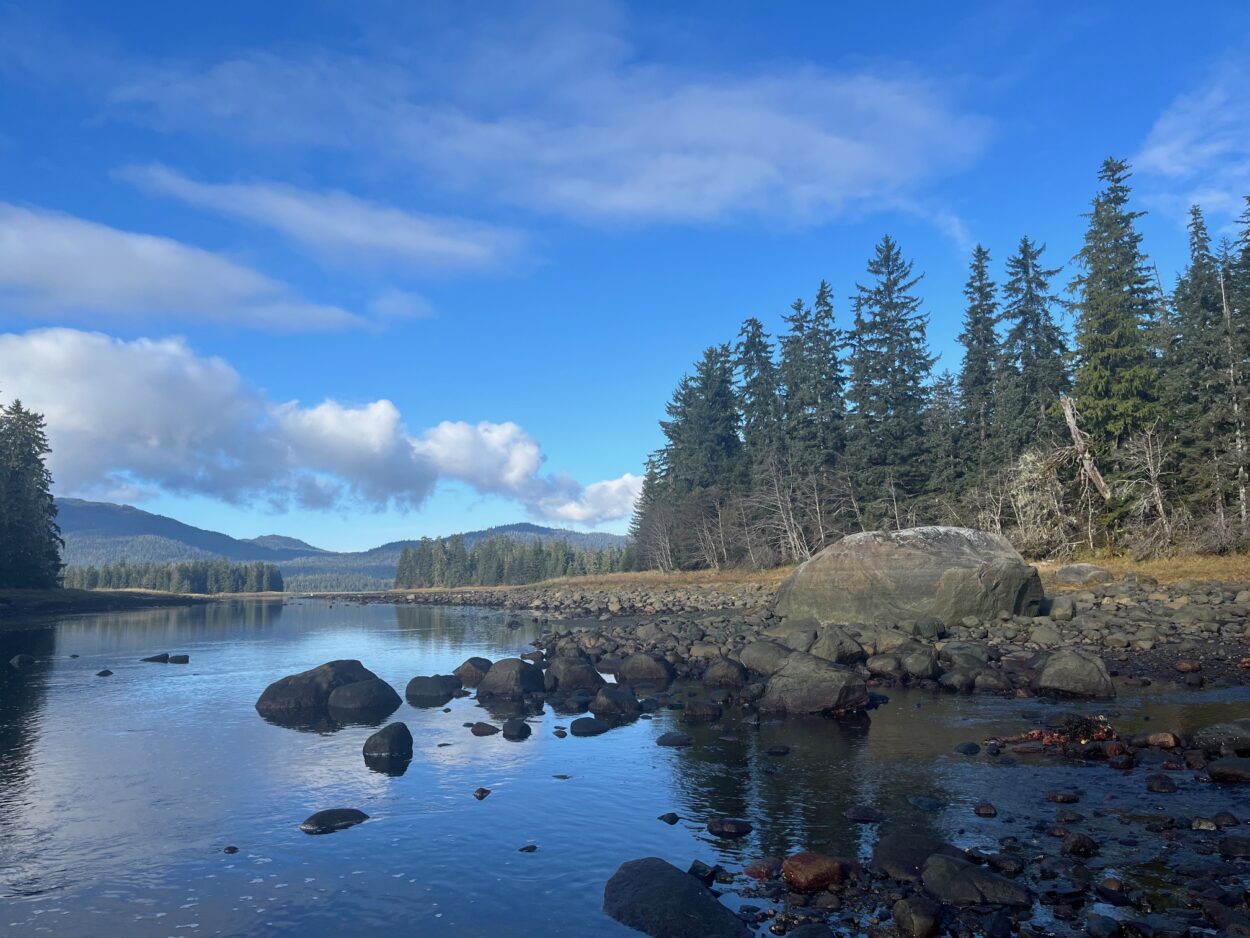
Anglers won’t get to fish for Crystal Lake Hatchery king salmon this summer. The State won’t open the fishery because of low projected returns. The king salmon swim two miles up Blind Slough through Blind River Rapids to the hatchery, which is about 17 miles south of Petersburg. Each year the hatchery needs a specific number of returning salmon in order to raise fish for future runs.
A proposal headed to the Alaska Board of Fisheries next year would change how that run of king salmon is managed. Petersburg’s Fish and Game Advisory Committee approved a draft management plan for king salmon reared at the hatchery.
Many fishermen expressed frustration with the current management plan at a meeting in March. That plan still allows fishing at the mouth of the slough in the saltwater this summer. Advisory Committee member Ted Sandhofer said he wanted to see a more equitable management plan.
“It’s a conservation issue,” he said. “So we got to do something or nobody’s gonna be able to fish…I mean, if we’re going to do something we need to make the pain equal across all the user groups.”
Sport fishermen pointed out that freshwater fishing doesn’t require a boat, making it more accessible to the public. They said the current management plan favors tourists from out of state who stay at lodges and fish for kings in the nearby saltwater.
The current plan closes king salmon fishing in freshwater once projected returns dip below 2000 fish. But it allows anglers in saltwater to keep four kings per day.
Ben Case is an advisory committee member and helped draft the proposed new management plan. He said they tried to address those concerns in the proposal.
“We reduced the bag limit in the saltwater for non residents,” he said. “But provided some opportunity for residents in the freshwater.”
The new proposal would allow saltwater and freshwater anglers to keep just one king a day if projected returns dip below 2000 fish. And that’s only if they’re Alaska residents. Tourists could also keep one king in saltwater, but none in freshwater. Even when higher returns are expected, the proposed plan allows residents to keep more kings than tourists, and bag limits are roughly the same for salt and freshwater resident fishermen.
The proposed plan also re-draws the area where anglers are allowed to fish for king salmon in freshwater. Returning salmon can face some tough conditions when they get to Blind River Rapids. The water can be too warm, or too low, and sometimes fishermen catch and release the kings, which stresses them out. Case says the plan addresses that by limiting freshwater fishing to a portion of the slough below the rapids, closer to the saltwater.
“We recognize the importance of reducing pressure on those spawning fish upstream of the rapids where they tend to hold for periods of time until they have the right water conditions to make it up to the hatchery,” he said.
The Southeast Regional Aquaculture Association, which manages the hatchery, worked closely with the advisory committee to draft the proposal. The group submitted a similar but separate proposal to the Board of Fish. During a revision period this fall, the groups plan to merge the proposals.
The Alaska Board of Fisheries will consider the Petersburg proposal and others from Southeast when it meets in Ketchikan next year.
The local advisory committee also voted to ask Fish and Game Commissioner Doug Vincent-Lang to reduce saltwater king salmon fishing at the mouth of Blind Slough this summer to reduce pressure on Crystal Lake Hatchery king salmon stocks.











